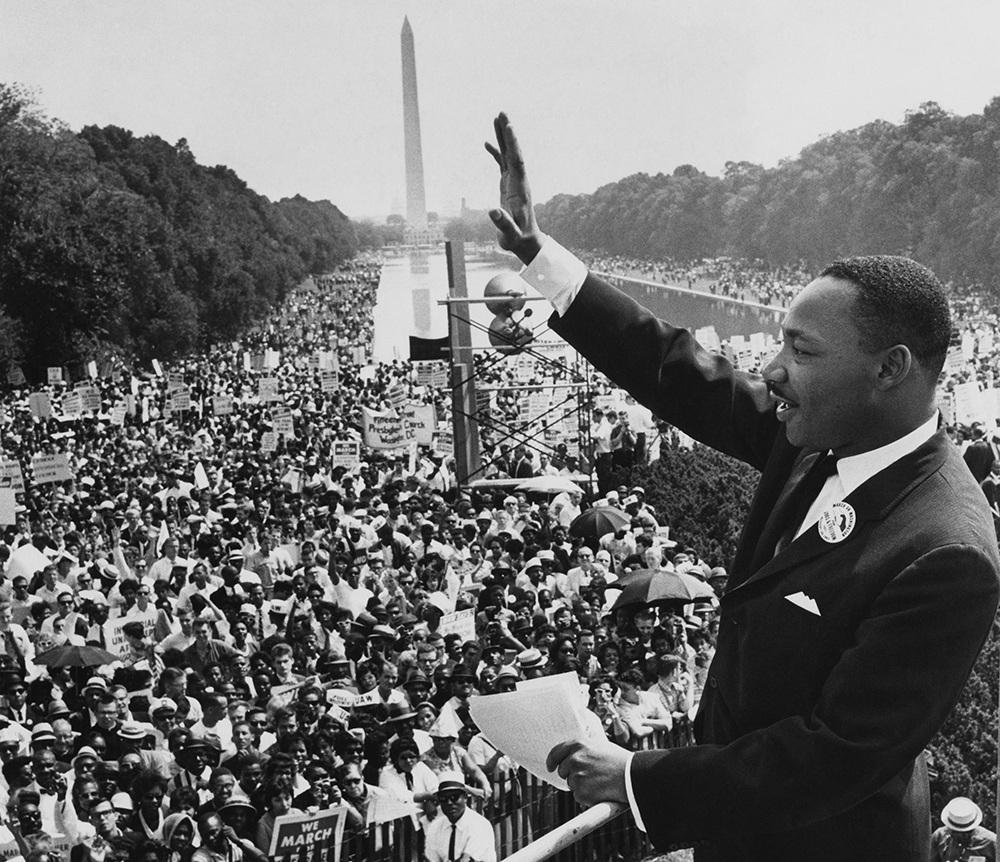The speech was to give the Black people hope that one day there will be no discrimination, but till then, they will have to fight for their rights. Martin Luther King Jr.’s “I Have a Dream” speech explains America’s long history of racial injustice and invites his audience to hold their country to its own foundational ideals of freedom, justice, and equality. King opens his address by reminding his audience—the 250,000+ people who turned out for the March on Washington in August 1963—that the Emancipation Proclamation, which abolished slavery in America, was signed into law over a century ago.
But, while African Americans are free of captivity, they are not different in the sense that the “shackles of prejudice” and “handcuffs of isolation” remain to characterize the Black union in the United States. It is past time for Black Americans to “cash [the] cash” they were guaranteed 100 years ago and claimed “the wealth of liberty and the certainty of injustice,” according to King. The “sweltering summer of the Negro’s rightful dissatisfaction,” as King puts it, has passed, and the country has approached a boiling temperature.
King advises participants from the front ranks of the human liberties struggle not to let “anger and resentment” dictate their efforts, even as he asks for “twisters of insurrection” to swirl into activity. They must not allow their campaign for fairness to “degrade into physical abuse,” as King urges his audience, and they must not consider their white allies as adversaries. According to King, in order to achieve true equality, Americans of all ethnicities must join and stay committed to the values of constructive unity. Most of his viewers already had endured long and arduous struggles—King knows that individuals active in the civil rights struggle have already been assaulted, ridiculed, and imprisoned (Lentz-Smith).
Despite this, he encourages them to return home after the march, whether to the scorching South or to the “ghettos of the northern cities,” believing in the importance and prospects of their fight. Then King speaks of his dream for America that one day the nation will “live out the full meaning of its credo” and make the belief that “all people are created equal” a truth. He hopes that his kids will live in a community where they will not be condemned “by the race or ethnicity, but by the quality of their personality” and that light and dark offspring will one day stand united as family members.
To genuinely create America a proud country, King challenges his followers to carry their hope in serious reform back to their home cities, in which they must continue struggling together, face imprisonment together, and “stand up for liberation together.” He believes in the freedom to resound across the state, from Colorado’s tallest mountains to Georgia’s Stone Mountain and “every hill and molehill of Mississippi.”
Only when “black men and white men, Jews and Gentiles, Catholics and Protestants” are able to chant honestly and genuinely the words of the old black people divinity. “Free at last, free at last; thank God Almighty, we are free at last,” he says, will “black men and white men, Jews and Gentiles, Catholics and Protestants” be able to sing truthfully and honestly the words of the old Black spiritual: “Free at last, free at last; thank God Almighty.

The picture shows a multitude of people listening to martin Luther King. Most of them are black people, a sign they really want to be given hope about their situation of discrimination by white people. Martin is reading a speech to them and giving them hope. The movement to Washington was the beginning of claiming their rights and freedom. Most people in the photo are black, showing that they were the most oppressed group.
The speech’s apparent goal is to secure black person’s rights to freedom, fairness, and liberty while eliminating systemic racism based on ethnicity, despite the fact that America’s laws and actions associated with rights to all citizens, black folks have been denied such freedoms and have been victims of social discrimination and oppression. As a result, Martin Luther King Jr. gives this address in which he demands fairness for African-Americans. A parallel (comparison) is drawn between the pledges of the American constitution and a bad check by King. In spite that the American constitution guarantees equivalent rights to all citizens regardless of race or religion, America has refused to provide equal opportunities to its black citizens.
Discrimination based on race and color will erode America’s basis. According to Martin Luther King, his ambition is Fantasy. His dream is to live in a world where there is freedom, fairness, and equality. It makes no difference what hue your skin is, or what is the most significant thing in humanity. As a result, all prejudice and inequity will vanish one day. All of the African Americans and whites will stroll together as brothers and sisters, holding hands. Finally, all Americans, not just blacks, will be free. All around America, there will be sweet music of freedom, fairness, and justice.
Work Cited
Lentz-Smith, Adriane. “The Laws Have Hurt Me” Violence, Violation, And Black Women’s Struggles For Civil Rights.” Southern Cultures, vol 26, no. 3, 2020, pp. 42-66. Project Muse. Web.